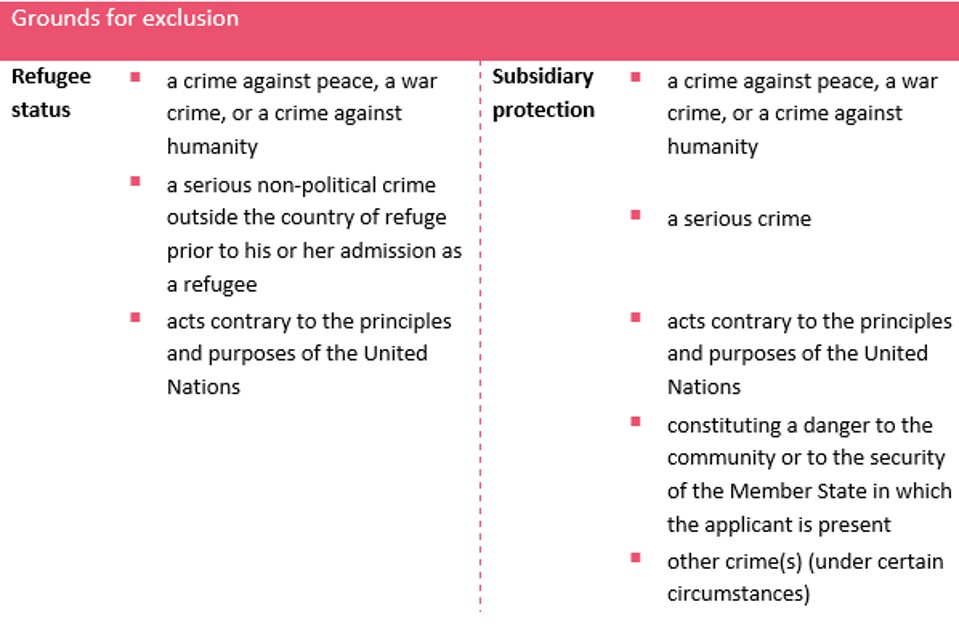|
⚠ |
|
Please note that this country guidance document has been replaced by a more recent one. The latest versions of country guidance documents are available at /country-guidance. |
Applying the exclusion clauses, where there are serious reasons to consider that the applicant has committed any of the relevant acts, is mandatory.
Exclusion should be applied in the following cases:

It should be underlined that the determining authority has the burden of proof to establish the elements of the respective exclusion grounds and the individual responsibility of the applicant, while the applicant remains under an obligation to cooperate in establishing all facts and circumstances relevant to his or her application.
In the context of Afghanistan, numerous circumstances and different profiles may require consideration of the potential applicability of exclusion grounds. The QD does not set a time limit for the application of the grounds for exclusion. Applicants may be excluded in relation to events occurring in the current conflict as well as in past conflicts (e.g. the ‘Saur’ Revolution and Khalq Regime (1978-1979), the Soviet Afghan War (1979-1989), the conflict between the Afghan Government and the Mujahideen Forces (1989-1992) and the Afghan Civil War (1992-1996), the Taliban Regime (1996-2001)). Afghan nationals have also been involved in conflicts outside Afghanistan, which may be of relevance for exclusion considerations. COI indicates that excludable acts are committed by many actors, both in relation to the armed conflicts, as well as in the context of general criminality and human rights abuses.
| The following subsections provide guidance on the potential applicability of the exclusion grounds in the context of Afghanistan. | |

